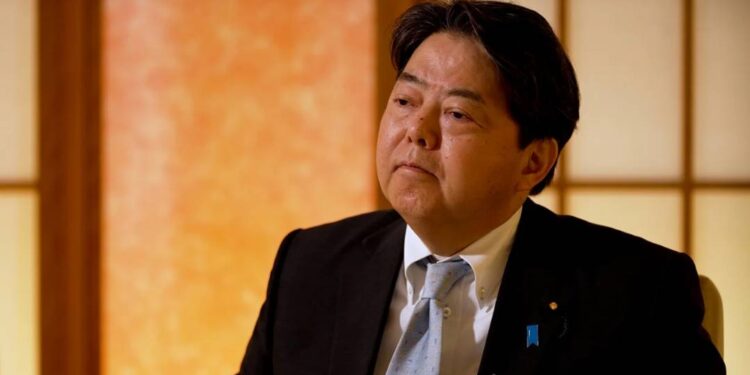By Oyintari Ben
In a Wednesday exclusive interview, Japan’s foreign minister said the country is in discussions to establish a NATO liaison office, the first of its kind in Asia, claiming that the globe is now less stable due to Russia’s invasion of Ukraine.
On Wednesday, Foreign Minister Yoshimasa Hayashi stated, “We are already in conversations, but no details (have) been finalised yet.
Hayashi noted Russia’s invasion of Ukraine last year as an instance that compelled Japan to reevaluate regional security and had effects well beyond the confines of Europe.
“The globe has become more unstable due to Russia’s actions against Ukraine, he continued, which is why we are talking about it.
“The situation here in the Pacific is immediately impacted by something happening in Eastern Europe, which is not just limited to that region. Because of this, collaboration between East Asia and NATO is becoming more and more crucial”.
The decision, he continued, sends a signal to the bloc’s Asia Pacific partners that NATO is “engaging in a very steady manner” despite the fact that Japan is not a treaty member of NATO.
Amid widening geopolitical rifts, constructing a NATO liaison office in Japan would be a significant development for the Western alliance.
The Chinese government, which has previously cautioned against such a move, is expected to criticise this decision.
Hayashi emphasised the “severe and complex” regional security situation that Japan is currently facing, stressing that in addition to heightened Russian aggressiveness, Tokyo is also dealing with a nuclear-armed North Korea and a rising China.
Hayashi stated that the proposed formation of the office was not directed at any particular nation despite the rising regional tensions. Hayashi clarified, “This is not meant to be delivering a message.
He continued by saying that Japan and other nations still needed to work with China on more important concerns like the Covid-19 pandemic and climate change and that Tokyo desired a “constructive and stable relationship” with Beijing.



































